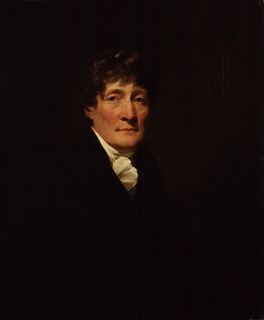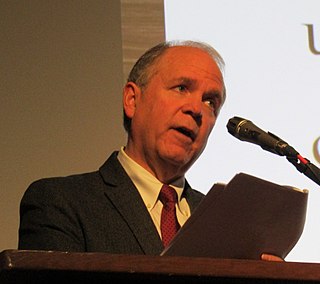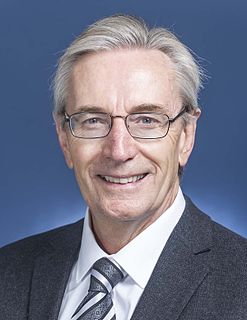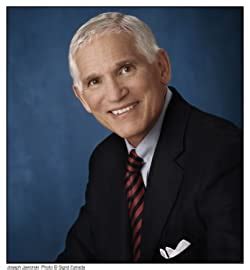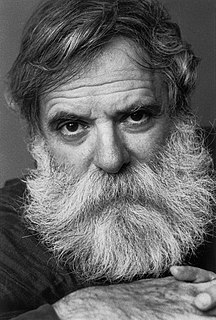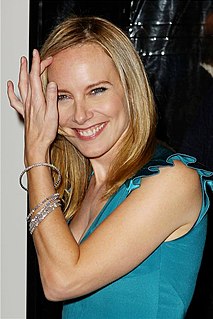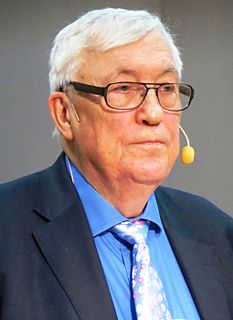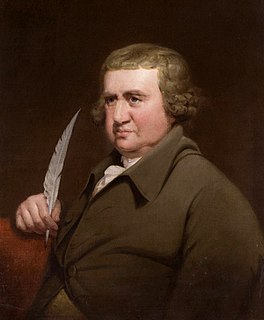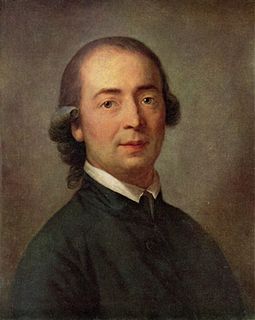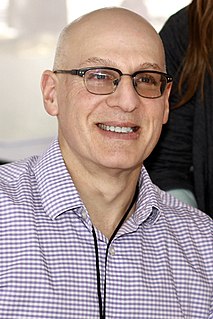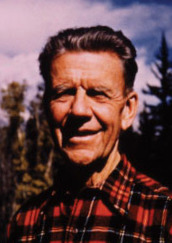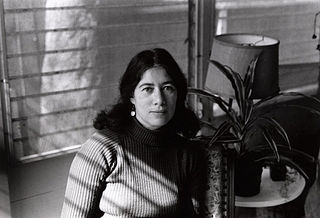Top 967 Observed Quotes & Sayings - Page 15
Explore popular Observed quotes.
Last updated on April 22, 2025.
From the little reading I had done I had observed that the men who were most in life, who were molding life, who were life itself, ate little, slept little, owned little or nothing. They had no illusions about duty, or the perpetuation of their kith and kin, or the preservation of the State. They were interested in truth and in truth alone. They recognized only one kind of activity - creation.
We tend to overestimate what we can do in a short period, and underestimate what we can do over a long period, provided we work slowly and consistently. Anthony Trollope, the nineteenth-century writer who managed to be a prolific novelist while also revolutionizing the British postal system, observed, “A small daily task, if it be really daily, will beat the labours of a spasmodic Hercules.” Over the long run, the unglamorous habit of frequency fosters both productivity and creativity.
I'm here," she said, skidding to a stop. "Can we go now?" Sebastian insisted on helping her on with the coat. "I don't think anyone's ever helped me with my coat before," Clary observed, freeing the hair that had gotten trapped under her collar. "Well, maybe waiters. Were you ever a waiter?" "No, but I was brought up by a Frenchwoman," Sebastian reminded her. "It involves an even more rigorous course of training.
The great renunciation of old age as it prepared for death, wraps itself up in its chrysalis, which may be observed at the end of lives that are at all prolonged, even in old lovers who have lived for one another, in old friends bound by the closest ties of mutual sympathy, who, after a certain year, cease to make the necessary journey or even to cross the street to see one another, cease to correspond, and know that they will communicate no more in this world.
Indeed, I have observed one ingredient, somewhat necessary in a man’s composition towards happiness, which people of feeling would do well to acquire; a certain respect for the follies of mankind: for there are so many fools whom the opinion of the world entitles to regard, whom accident has placed in heights of which they are unworthy, that he who cannot restrain his contempt or indignation at the sight will be too often quarrelling with the disposal of things to relish that share which is allotted to himself.
You have certainly observed the curious fact that a given word which is perfectly clear when you hear it or use it in everyday language, and which does not give rise to any difficulty when it is engaged in the rapid movement of an ordinary sentence becomes magically embarrassing, introduces a strange resistance, frustrates any effort at definition as soon as you take it out of circulation to examine it separately and look for its meaning after taking away its instantaneous function.
Bistromathics itself is simply a revolutionary new way of understanding the behavior of numbers. Just as Einstein observed that space was not an absolute but depended on the observer's movement in space, and that time was not an absolute, but depended on the observer's movement in time, so it is now realized that numbers are not absolute, but depend on the observer's movement in restaurants.
After we came out of the church, we stood talking for some time together of Bishop Berkeley's ingenious sophistry to prove the non-existence of matter, and that every thing in the universe is merely ideal. I observed, that though we are satisfied his doctrine is not true, it is impossible to refute it. I never shall forget the alacrity with which Johnson answered, striking his foot with mighty force against a large stone, till he rebounded from it, "I refute it thus."
The people of those foreign countries are very, very ignorant. They looked curiously at the costumes we had brought from the wilds of America. They observed that we talked loudly at table sometimes. They noticed that we looked out for expenses and got what we conveniently could out of a franc, and wondered where in the mischief we came from. In Paris they just simply opened their eyes and stared when we spoke to them in French! We never did succeed in making those idiots understand their own language.
Having observed his market calls real time over the years, I can say that Jason Perl's application of the DeMark Indicators distinguishes his work from industry peers when it comes to market timing. This book demonstrates how traders can benefit from his insight, using the studies to identify the exhaustion of established trends or the onset of new ones. Whether you're fundamentally or technically inclined, Perl's DeMark Indicators is an invaluable trading resource.
One writes such a story [The Lord of the Rings] not out of the leaves of trees still to be observed, nor by means of botany and soil-science; but it grows like a seed in the dark out of the leaf-mold of the mind: out of all that has been seen or thought or read, that has long ago been forgotten, descending into the deeps. No doubt there is much personal selection, as with a gardener: what one throws on one's personal compost-heap; and my mold is evidently made largely of linguistic matter.
Writers and filmakers, that is, people who describe the world, suffer from an occupational disease. They never experience moments in life quite spontaneously. You always look at yourself from the outside. Even as a child I always observed myself and the world. I believe that everyone who chooses this path in any way, who chooses to be a describer of life, suffers from this condition. It's like a mental obsession. It can be a great pity too. It robs you of a certain joy in spontaneity.
It may here be observed, that all who are offended by us are exposed to our view. But the rich man sees Lazarus not with any other righteous man, but in Abraham's bosom. For Abraham was full of love, but the man is convicted of cruelty. Abraham sitting before his door followed after those that passed by, and brought them into his house, the other turned away even them that abode within his gate.
Sickness is real. However, I've seen too many people suffering with sicknesses not of their own choosing to say glibly that all sickness is caused by sin. On the other hand, to believe that sin does not exist and that all of our trials and tribulations have naturalistic explanations or are simply random events may cause us to miss the very solution we seek. Elder Jeffrey R. Holland observed that "too many people . . . want to sin and call it psychology."
I do not ... reject the use of statistics in medicine, but I condemn not trying to get beyond them and believing in statistics as the foundation of medical science. ... Statistics ... apply only to cases in which the cause of the facts observed is still [uncertain or] indeterminate. ... There will always be some indeterminism ... in all the sciences, and more in medicine than in any other. But man's intellectual conquest consists in lessening and driving back indeterminism in proportion as he gains ground for determinism by the help of the experimental method.
Will it be said that the judgment of a male of two years old, is more sage than that of a female's of the same age? I believe the reverse is generally observed to be true. But from that period what partiality! how is the one exalted, and the other depressed, by the contrary modes of education which are adopted! the one is taught to aspire, and the other is early confined and limited. As their years increase, the sister must be wholly domesticated, while the brother is led by the hand through all the flowery paths of science.
First therefore let us seek the dignity of knowledge in the archetype or first platform, which is in the attributes and acts of God, as far as they are revealed to man and may be observed with sobriety; wherein we may not seek it by the name of Learning; for all Learning is Knowledge acquired, and all Knowledge in God is original: and therefore we must look for it by another name, that of Wisdom or Sapience, as the Scriptures call it.
... as we are being blunt, the fact is that Tony [Abbott] and the people who put him in his job do not want to do anything about climate change. They do not believe in human caused global warming. As Tony observed on one occasion "climate change is crap" or if you consider his mentor, Senator Minchin, the world is not warming, its cooling and the climate change issue is part of a vast left wing conspiracy to deindustrialise the world.
Another thing I've observed is how critical the role of the CEO is when a technology truly is disruptive. In looking back on companies that have successfully launched independent disruptive business units, the CEO always had a foot in both camps. Never have they succeeded when they spin something off in order to get it off the CEO's agenda. The CEOs that did this had extraordinary personal self-confidence, and almost always they were the founders of the companies.
You cannot stay on the summit forever; you have to come down... So why bother in the first place? Just this: What is above knows what is below, but what is below does not know what is above. In climbing, take careful note of the difficulties along your way; for as you go up , you can observe them. Coming down, you will no longer see them, but you will know they are there if you have observed them well.
In questions of this sort there are two things to be observed. First, that the truth of the Scriptures be inviolably maintained. Secondly, since Scripture doth admit of diverse interpretations, that no one cling to any particular exposition with such pertinacity that, if what he supposed to be the teaching of Scripture should afterward turn out to be clearly false, he should nevertheless still presume to put it forward, lest thereby the sacred Scriptures should be exposed to the derision of unbelievers and the way of salvation should be closed to them.
It may be observed in general that the future is purchased by the present. It is not possible to secure distant or permanent happiness but by the forbearance of some immediate gratification. This is so evidently true with regard to the whole of our existence that all precepts of theology have no other tendency than to enforce a life of faith; a life regulated not by our senses but by our belief; a life in which pleasures are to be refused for fear of invisible punishments, and calamities sometimes to be sought, and always endured, in hope of rewards that shall be obtained in another state.
Governments do not make ideals, but ideals make governments. This is both historically and logically true. Of course the government can help to sustain ideals and can create institutions through which they can be the better observed, but their source by their very nature is in the people. The people have to bear their own responsibilities. There is no method by which that burden can be shifted to the government. It is not the enactment, but the observance of laws, that creates the character of a nation.
In 1966, while working on a feature about a Picasso exhibition at the Tel Aviv Museum of Art, I recorded the pre-opening preparations and observed a moment: One of the cleaners stopped, puzzled, in front of the Picassos. I think that this is an image that can be universally understood, but with a grain of salt. I never chose this image in edits before because it seemed to me that it felt posed-the composition was a little too perfect. But, believe me, it was a lucky moment.
The greatest inspiration I draw upon is, is this city (New York) and riding the subway and watching people and I find that's kind of like the best, the best acting teacher. You know, I wonder, like people who have huge celebrity, sometimes I feel bad, should this be one of their methods 'cause I don't know how they can observe life anymore, because they become the observed. So, I, I appreciate that New York can still do that.
What is this?” he went on now, spearing an unfortunate object on a fork and raising it to eye level. “This… this… thing?” “A parsnip?” Jem suggested. “A parsnip planted in Satan’s own garden.” said Will. He glanced about. “I don’t suppose there’s a dog I could feed it to.” “There don’t seem to be any pets about,” Jem—who loved all animals, even the inglorious and ill-tempered Church—observed. “Probably all poisoned by parsnips,” said Will.
What happens with your sex energy depends on how you use it. What it can become does not depend on it alone, but on your understanding and on how you live your life. Have you not observed that it becomes brahmacharya, the state of celibacy when it is transformed? bramhacharya is not hostile to passion; brahmacharya is the purification, the transcendence, the sublimation of passion. In the same way, the energy that manifests itself in violence becomes peace, serenity and tranquility. It is only a question of transformation.
While I was drawn to the Renaissance, my first (unpublished) novels took place in modern times. When the subject of alchemy started creeping into my stories, an astute mentor observed that the bits about alchemy might fit better in another time frame. When I finally decided to weave the pieces about the medieval science into historical settings, a successful novel began to emerge. (And I dusted off that art history book, and put it to use once again.)
I have never seen myself as an alarmist but rather as a scientist with a critical viewpoint, and in that sense I have always been a skeptic. I have devoted most of my career to developing models for predicting the weather, and in doing so I have learned the importance of validating forecasts against observed weather. As a result, that's an approach I strongly favor for "climate predictions." It's essential to validate model results, especially when dealing with complex systems such as the climate. It's essential do so properly if such predictions are to be considered credible.
There is plenty of room left for exact experiment in art, and the gate has been opened for some time. What had been accomplished in music by the end of the eighteenth century has only begun in the fine arts. Mathematics and physics have given us a clue in the form of rules to be strictly observed or departed from, as the case may be. Here salutary discipline is come to grips first of all with the function of forms, and not with form as the final result … in this way we learn how to look beyond the surface and get to the root of things.
After all, is it not the way we humans shape the universe, shape time itself? Do we not take the raw stuff of chaos and impose a beginning, middle, and end on it, like the simplest and most profound of folktales, to reflect the shapes of our own tiny lives? And if the physicists are right, that the physical world changes as it is observed, and we are its only known observers, then might we not be bending the entire chaotic universe, the eternal, ever-active Now, to fit that familiar form?
It is known to all persons who are conversant in experimental philosophy, that there are many little attentions and precautions necessary to be observed in the conducting of experiments, which cannot well be described in words, but which it is needless to describe, since practice will necessarily suggest them; though, like all other arts in which the hands and fingers are made use of, it is only much practice that can enable a person to go through complex experiments, of this or any kind, with ease and readiness.
Whether we consider Nazi Germany or Abu Ghraib prison, there were many people who observed what was happening and said nothing. At Abu Ghraib, one photo shows two soldiers smiling before a pyramid of naked prisoners while a dozen other soldiers stand around watching passively. If you observe such abuses and don't say, "This is wrong! Stop it!" you give tacit approval to continue. You are part of the silent majority that makes evil deeds more acceptable.
With regard to the learned professions, little need be observed; they truly form no distinct interest in society . . . [discussing the landed, merchant, and learned classes in legislative assembly]. Will not the man of the learned profession, who will feel a neutrality to the rivalships between the different branches of industry, be likely to prove an impartial arbiter between them, ready to promote either, so far as it shall appear to him conducive to the general interests of society?
Science probes; it does not prove. Imagine Newton's reaction to an objector of his law of gravity who argued that he could not establish a universal law because he had not observed every falling apple, much less proved the law of gravity - there might, after all, be an apple that levitates! Why should a group of simple, stable compounds of carbon, hydrogen, oxygen and nitrogen struggle for billions of years to organize themselves into a professor of chemistry?
So the horns of the stag are sharp to offend his adversary, but are branched for the purpose of parrying or receiving the thrusts of horns similar to his own, and have therefore been formed for the purpose of combating other stags for the exclusive possession of the females; who are observed, like the ladies in the times of chivalry, to attend to the car of the victor. The final cause of this contest amongst the males seems to be, that the strongest and most active animal should propagate the species, which should thence become improved.
For if we are observed in all matters, we are constantly under threat of correction, judgment, criticism, even plagiarism of our own uniqueness. We become children, fettered under watchful eyes, constantly fearful that-either now or in the uncertain future-patterns we leave behind will be brought back to implicate us, by whatever authority has now become focused upon our once-private and innocent acts. We lose our individuality, because everything we do is observable and recordable.
Have you never observed that children will sometimes, of a sudden, give utterance to ideas which makes us wonder how they got possession of them? Which presuppose a long series of other ideas and secret self-communings? Which break forth like a full stream out of the earth, an infallible sign that the stream was not produced in a moment from a few raindrops, but had long been flowing concealed beneath the ground?
The indispensability of reason does not imply that individual people are always rational or are unswayed by passion and illusion. It only means that people are capable of reason, and that a community of people who choose to perfect this faculty and to exercise it openly and fairly can collectively reason their way to sounder conclusions in the long run. As Lincoln observed, you can fool all of the people some of the time, and you can fool some of the people all of the time, but you can't fool all of the people all of the time.
We had entered an era of limitlessness, or the illusion thereof, and this in itself is a sort of wonder. My grandfather lived a life of limits, both suffered and strictly observed, in a world of limits. I learned much of that world from him and others, and then I changed; I entered the world of labor-saving machines and of limitless cheap fossil fuel. It would take me years of reading, thought, and experience to learn again that in this world limits are not only inescapable but indispensable.
It seemed an advantage to be traveling alone. Our responses to the world are crucially moulded by the company we keep, for we temper our curiosity to fit in with the expectations of others...Being closely observed by a companion can also inhibit our observation of others; then, too, we may become caught up in adjusting ourselves to the companion's questions and remarks, or feel the need to make ourselves seem more normal than is good for our curiosity.
Religion, as distinguished from modern paganism, implies a life in conformity with nature. It may be observed that the natural life and the supernatural life have a conformity to each other which neither has with the mechanistic life...A wrong attitude towards nature implies, somewhere, a wrong attitude towards God...[We should] struggle to recover the sense of relation to nature and to God.
Miss Trent regarded her thoughtfully. "Well, it's an odd circumstance, but I've frequently observed that whenever you boast of your beauty you seem to lose some of it. I expect it must be the change in your expression." Startled, Tiffany flew to gaze anxiously into the ornate looking-glass which hung above the fireplace. "Do I?" she asked naively. "Really do I, Ancilla?" "Yes, decidedly," replied Miss Trent, perjuring her soul without the least hesitation.
When I so pressingly urge a strict observance of all the laws, let me not be understood as saying there are no bad laws, nor that grievances may not arise, for the redress of which, no legal provisions have been made. I mean to say no such thing. But I do mean to say, that, although bad laws, if they exist, should be repealed as soon as possible, still while they continue in force, for the sake of example, they should be religiously observed.
There had been observed in this country certain streams of influence which are causing a marked deterioration in our literature, amusements, and social conduct...a nasty Orientalism which had insidiously affected every channel of expression...The fact that these influences are all traceable to one racial source [Judaism] is something to be reckoned with...Our opposition is only in ideas, false ideas, which are sapping the moral stamina of the people.
When K. looked at the castle, often it seemed to him as if he were observing someone who sat quietly there in front of him gazing, not lost in thought and so oblivious of everything, but free and untroubled, as if he were alone with nobody to observe him, and yet must notice that he was observed, and all the same remained with his calm not even slightly disturbed; and really - one did not know whether it was cause or effect - the gaze of the observer could not remain concentrated there, but slid away.
What has soul in it differs from what has not, in that the former displays life. Now this word has more than one sense, and provided any one alone of these is found in a thing we say that thing is living. Living, that is, may mean thinking or perception or local movement and rest, or movement in the sense of nutrition, decay and growth. Hence we think of plants also as living, for they are observed to possess in themselves an originative power through which they increase or decrease in all spatial directions.
If there is any kind of animal which is female and has no male separate from it, it is possible that this may generate a young one from itself. No instance of this worthy of any credit has been observed up to the present at any rate, but one case in the class of fishes makes us hesitate. No male of the so-called erythrinus has ever yet been seen, but females, and specimens full of roe, have been seen. Of this, however, we have as yet no proof worthy of credit.
The happiness of being envied is glamour.
Being envied is a solitary form of reassurance. It depends precisely upon not sharing your experience with those who envy you. You are observed with interest but you do not observe with interest - if you do, you will become less enviable. In this respect the envied are like bureaucrats; the more impersonal they are, the greater the illusion (for themselves and for others) of their power. The power of the glamorous resides in their supposed happiness: the power of the bureaucrat in his supposed authority.
Remember: Plot is no more than footprints left in the snow after your characters have run by on their way to incredible destinations. Plot is observed after the fact rather than before. It cannot precede action. It is the chart that remains when an action is through. That is all Plot ever should be. It is human desire let run, running, and reaching a goal. It cannot be mechanical. It can only be dynamic.
I have observed that male writers tend to get asked what they think and women what they feel," she says. "In my experience, and that of a lot of other women writers, all of the questions coming at them from interviewers tend to be about how lucky they are to be where they are – about luck and identity and how the idea struck them. The interviews much more seldom engage with the woman as a serious thinker, a philosopher, as a person with preoccupations that are going to sustain them for their lifetime.
She emptied herself of Fabio and of herself, of all the useless efforts she had made to get where she was and find nothing there. With detached curiosity she observed the rebirth of her weaknesses, her obsessions. This time she would let them decide, since she hadn't been able to do anything anyway. Against certain parts of yourself you remain powerless, she said to herself, as she regressed pleasurably to the time when she was a girl.
Having a book is somewhat like having a baby, as many woman writers have observed before me: the conception, the long preparation, the wait, the growing heaviness (not of body in this case but of the spirit and the manuscript) toward the end, the initial delight at the sight of the product, fully formed and seemingly perfect, and then the usual postpartum depression. What will people whose opinion I care about, and those whose views I don't value but have weight in the world of reader, think of it?
On Apollo 11 in route to the Moon, I observed a light out the window that appeared to be moving alongside us. It was either the rocket we had separated from, or the 4 panels that moved away when we extracted the lander from the rocket and we were nose to nose with the two spacecraft. So in the close vicinity, moving away, were 4 panels. And i feel absolutely convinced that we were looking at the sun reflected off of one of these panels.
You two have to promise to be careful!" Sinead handed Amy a small plastic bag. "I made you a going-away present–a high-powered miniature smoke bomb. Could come in handy against the Vespers. It works with knockout gas, so I tossed in a couple of breathing filters." "That's the Cahill equivalent of a Hallmark moment," Dan observed. "A smoke bomb. When you care enough to send the very best–explosives." "I'm not a flowers-and-candy kind of girl," Sinead informed him.
There is growing awareness of the beauty of country ... a sincere desire to keep some of it for all time. People are beginning to value highly the fact that a river runs unimpeded for a distance... They are beginning to obtain deep satisfaction from the fact that a herd of elk may be observed in back country, on ancestral ranges, where the Indians once hunted them. They are beginning to seek the healing relaxation that is possible in wild country. In short, they want it.
"There are one or two elementary rules to be observed in the way of handling patients," he remarked, seating himself on the table and swinging his legs. "The most obvious is that you must never let them see that you want them. It should be pure condescension on your part seeing them at all; and the more difficulties you throw in the way of it, the more they think of it. Break your patients in early, and keep them well to heel."
If Henry James were still with us, he'd not only approve of Paris, He Said, he could have written it himself, though without his serpentine syntax. It's a delicious treat, studded with wise and beautifully observed detail, that places side by side those perpetually fascinating antagonists, the eager, casual American and the meticulous, pleasure-driven French. Christine Sneed knows everyone's intimate secrets and her book is lively, amusing, and, ultimately, kind to pretty much all of them.
When I first painted a number of canvases grey all over (about eight years ago), I did so because I did not know what to paint, or what there might be to paint: so wretched a start could lead to nothing meaningful. As time went on, however, I observed differences of quality among the grey surfaces - and also that these betrayed nothing of the destructive motivation that lay behind them. The pictures began to teach me. By generalizing a personal dilemma, they resolved it.
I would love to see the world's space programs continue toward sending humans to an asteroid or to Mars, with, of course, a full plan in place to bring them back. That excites me. And one of the things that excites me most about space is that we can go up there and put spacecraft in orbit with sensors that will help us measure the health of our planet, which is becoming particularly important. Our planet needs to be observed.




